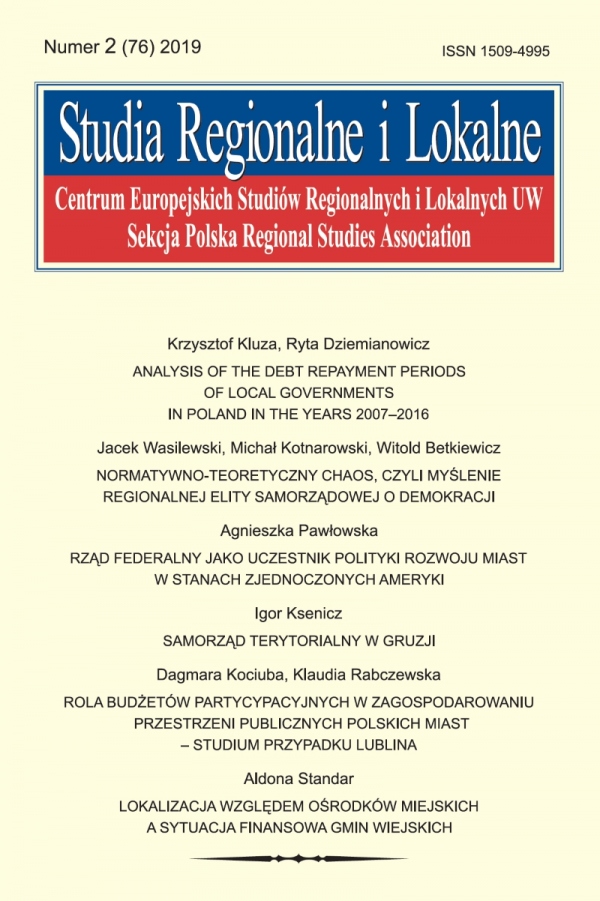Published in
2(76)/2019

- Krzysztof Kluza, Ryta DziemianowiczAnalysis of the debt repayment periods of local governments in Poland in the years 2007-2016[more]
- Jacek Wasilewski, Michał Kotnarowski, Witold BetkiewiczNormative-theoretical chaos, or a way of thinking of regional political elites about democracy[more]
- Agnieszka PawłowskaThe federal government as a participant in urban development policy in the United States of America[more]
- Igor KseniczLocal government in Georgia[more]
- Dagmara Kociuba, Klaudia RabczewskaThe role of participatory budgets on the development of urban public spaces – the Lublin case study[more]
- Aldona StandarLocation on city centres and the financial results of rural local governments[more]
- Martyna KopcińskaMonika Sidor, Katarzyna Kuć-Czajkowska, Justyna Wasil, Koabitacja na poziomie gminnym w Polsce (recenzja)[more]


